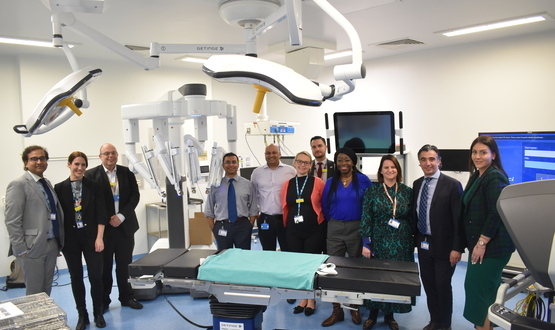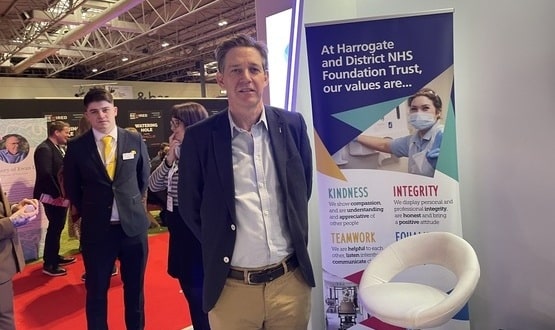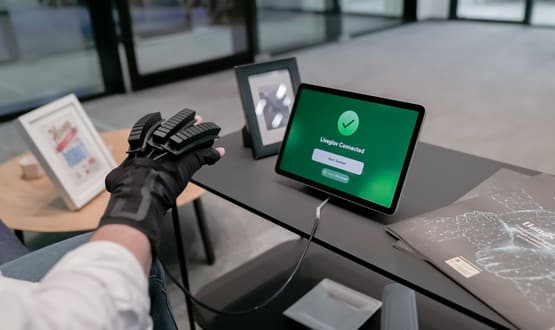Robot helps Sheffield surgeons
- 23 October 2013

Sheffield Teaching Hospitals NHS Foundation Trust has bought a robot to help surgeons perform complex operations.
The £1.8m multi-armed da Vinci robot lets surgeons perform less invasive surgery from a sophisticated robot arm.
David Throssell, the trust’s medical director, said that Sheffield hopes to become a centre for robotic surgery training.
“The da Vinci robot has an excellent safety record and makes the most of the surgeon’s skills to perform delicate and complex operations,” he said.
“Surgeons using the equipment will be given extensive training in its use.”
The robot is operated using joysticks and foot pedals from a console where surgeons can control a 3D camera and specialised instruments attached to the robotic arms.
Because the camera is ten times more accurate than the human eye and the robot has specially designed instruments, surgeons can perform complex surgery through small, precise incisions, as the machine adjusts itself to compensate for the natural tremor in the human hand.
Kirsten Major, director of strategy and operations at the trust, said it will improve surgical outcomes and means patients will spend less time recovering in hospital.
The robot, which performed its first operation at Sheffield’s Royal Hallamshire Hospital this month, will initially be used by urology surgeons.
Once the trust has become more familiar with the technology, it will also be used to undertake hysterectomies, head and neck tumour removal, bowel cancer surgery and treatment of severe gynaecological problems.
The da Vinci robot, developed by American company Intuitive Surgical, is also in use at the Royal Wolverhampton Hospitals NHS Trust where it was used to perform the country’s first ever robotic open-heart surgery last year.
Portsmouth Hospitals NHS Trust’s Queen Alexandra Hospital also uses the da Vinci robot in five surgical areas; upper gastrointestinal; urology; colorectal; gynaecology; and head and neck.




